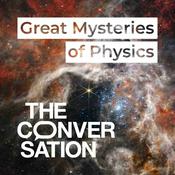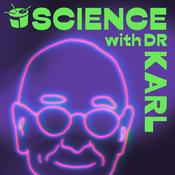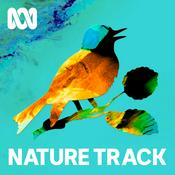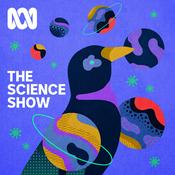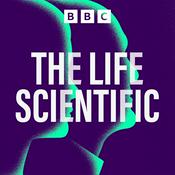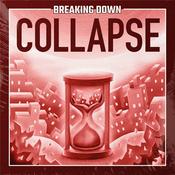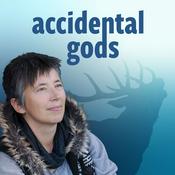7 episodes
- The quest for a theory of everything – explaining all the forces and particles in the universe – is arguably the holy grail of physics. While each of our main theories of physics works extraordinarily well, they also clash with each other. But do we really need a theory of everything? And are we anywhere near achieving one?
Featuring Vlatko Vedral, a professor of physics at the University of Oxford and Chanda Prescod-Weinstein, an assistant professor in physics and astronomy and core faculty in women's and gender studies at the University Of New Hampshire.
This episode is presented by Miriam Frankel and produced by Hannah Fisher. Executive producers are Jo Adetunji and Gemma Ware. Social media and platform production by Alice Mason, sound design by Eloise Stevens and music by Neeta Sarl. A transcript is available here. Sign up here for a free daily newsletter from The Conversation.
Further reading:
The standard model of particle physics may be broken – an expert explains - What’s the difference between a living collection of matter, such as a tortoise, and an inanimate lump of it, such as a rock? They are, after all, both just made up of non-living atoms. The truth is, we don’t really know yet. Life seems to just somehow emerge from non-living parts.
Featuring Jim Al-Khalili, professor of physics at the University of Surrey and Sara Imari Walker professor of physics at Arizona State University.
This episode is presented by Miriam Frankel and produced by Hannah Fisher. Executive producers are Jo Adetunji and Gemma Ware. Social media and platform production by Alice Mason, sound design by Eloise Stevens and music by Neeta Sarl. A transcript is available here. Sign up here for a free daily newsletter from The Conversation.
Further reading:
Life: modern physics can’t explain it – but our new theory, which says time is fundamental, might - It is hard to shake the intuition that there's a real and objective physical world out there. If I see an umbrella on top of a shelf, I assume you do too. And if I don't look at the umbrella, I expect it to remain there as long as nobody steals it. But the theory of quantum mechanics, which governs the micro-world of atoms and particles, threatens this commonsense view.
Featuring Chiara Marletto, Research Fellow of Physics, and Christopher Timpson, Professor of Philosophy of Physics, both at the University of Oxford, and Marcus Huber, Professor of Physics, TU Wien.
This episode is presented by Miriam Frankel and produced by Hannah Fisher. Executive producers are Jo Adetunji and Gemma Ware. Social media and platform production by Alice Mason, sound design by Eloise Stevens and music by Neeta Sarl. A transcript is available here. Sign up here for a free daily newsletter from The Conversation.
Further reading:
'QBism': quantum mechanics is not an objective description of reality – it reveals a world of genuine free will - Interest in the multiverse theory, suggesting that our universe is just one of many, has spiked since the movie Everything Everywhere All At Once was released. The film follows Evelyn Wang on her journey to connect with versions of herself in parallel universes to stop the destruction of the multiverse. The multiverse idea has long been an inspiration for science fiction writers. But does it have any basis in science? And if so, is it a concept we could ever test experimentally?
Featuring Andrew Pontzen, professor of Cosmology at University College London, Katie Mack, Hawking chair in cosmology and science communication at the Perimeter Institute for Theoretical Physics, and Sabine Hossenfelder, research fellow of physics at the Frankfurt Institute for Advanced Studies.
This episode is presented by Miriam Frankel and produced by Hannah Fisher. Executive producers are Jo Adetunji and Gemma Ware. Social media and platform production by Alice Mason, sound design by Eloise Stevens and music by Neeta Sarl. A transcript is available here. Sign up here for a free daily newsletter from The Conversation.
Further reading:
The multiverse: how we're tackling the challenges facing the theory
Curious Kids: how likely is it that there are parallel universes and other Earths?
The multiverse: our universe is suspiciously unlikely to exist – unless it is one of many - Imagine a universe with extremely strong gravity. Stars would be able to form from very little material. They would be smaller than in our universe and live for a much shorter amount of time. But could life evolve there? It after all took human life billions of years to evolve on Earth under the pleasantly warm rays from the Sun.
Now imagine a universe with extremely weak gravity. Its matter would struggle to clump together to form stars, planets and – ultimately – living beings. It seems we are pretty lucky to have gravity that is just right for life in our universe.
Featuring Fred Adams, professor of physics, University of Michigan, and Paul Davies, professor of physics, Arizona State University.
This episode was presented by Miriam Frankel and produced by Hannah Fisher. Executive producers are Jo Adetunji and Gemma Ware. Social media and platform production by Alice Mason, sound design by Eloise Stevens and music by Neeta Sarl. A transcript is available here. Sign up here for a free daily newsletter from The Conversation.
Further reading:
The multiverse is suspiciously unlikely to exist unless it is one of many
More Science podcasts
Trending Science podcasts
About Great Mysteries of Physics
Host Miriam Frankel delves into some of the great mysteries still puzzling the world's top physicists in this new series from The Conversation. This podcast will take you on a mind-blowing journey from the smallest to the largest conundrums, exploring curled-up dimensions, consciousness and parallel universes on the way.
Podcast websiteListen to Great Mysteries of Physics, Radiolab and many other podcasts from around the world with the radio.net app

Get the free radio.net app
- Stations and podcasts to bookmark
- Stream via Wi-Fi or Bluetooth
- Supports Carplay & Android Auto
- Many other app features
Get the free radio.net app
- Stations and podcasts to bookmark
- Stream via Wi-Fi or Bluetooth
- Supports Carplay & Android Auto
- Many other app features


Great Mysteries of Physics
Scan code,
download the app,
start listening.
download the app,
start listening.
